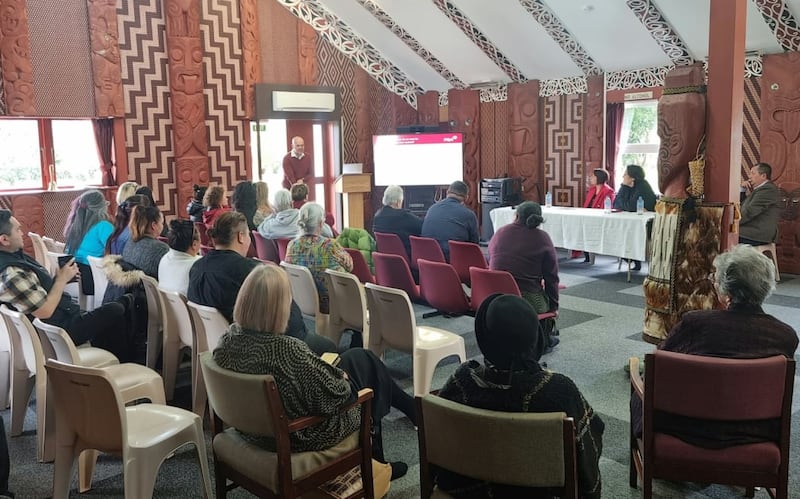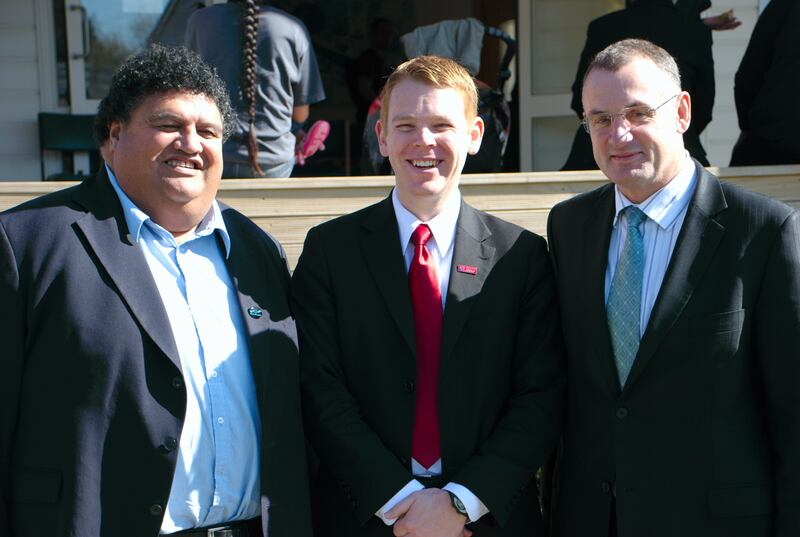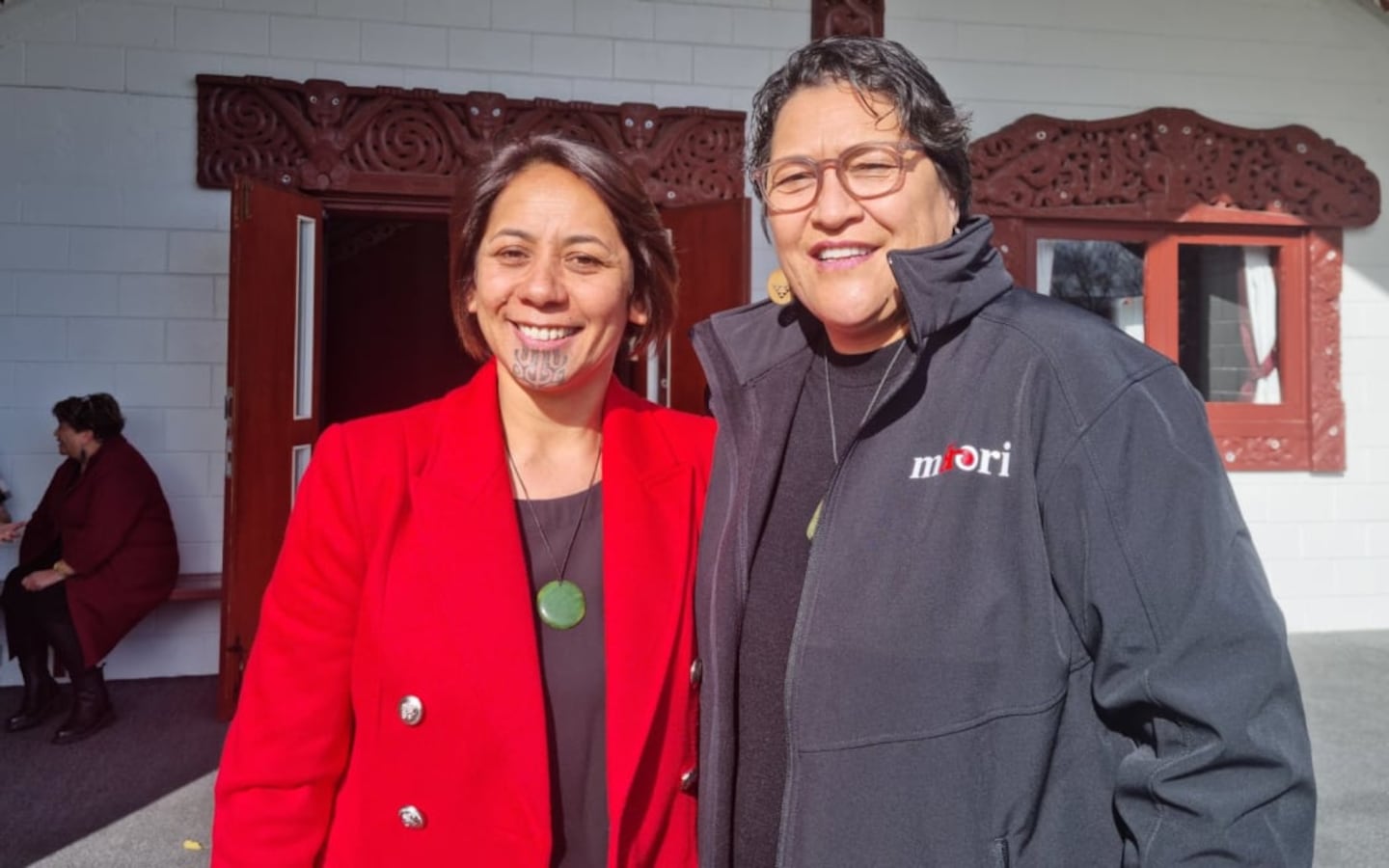The race for East Coast electorate Ikaroa-Rāwhiti has flung wide open, after Meka Whaitiri’s shock defection to Te Pāti Māori.
Whaitiri (Ngā iwi o te Tai Rāwhiti, Ngāti Kahungunu) has held the seat for the last decade but may have scuppered her chances of another term by switching tickets at the last minute.
She was up against Labour’s new candidate Cushla Tangaere-Manuel (Ngāti Porou), who came from a rugby governance and media background and was not on Labour’s list.
Both women met at Ōrongomai Marae in Upper Hutt for a candidates’ debate facilitated by the PSA union and political commentator and former Labour staffer Shane Te Pou.
There were so many laughs among the crowd of 30, the dramatic backdrop to this electorate contest could almost be forgotten.
Whaitiri, a former cabinet minister, blindsided her boss and left her former Labour colleagues shellshocked in May after her surprise defection.

She was now pushing what she described as an “unapologetically Māori” approach on a Te Pāti Māori ticket.
“The role that Te Pāti Māori plays is that we can be the thorn in the government’s side,” she told those at the debate, “no different to the Green Party whose job it is to hold the Labour government to account to do more in the climate action space”.
Tangaere-Manuel was not super clear on all of Labour’s policies but did promise attendees she would be an honest East Coast voice in the capital.
“I may not have all the answers but I’m here to listen.”
Whoever wins the race will need to do a lot of listening; Ikaora-Rāwhiti is a huge electorate, stretching from the top of the East Cape down to Wellington. The area includes more than two dozen iwi or hapū, many of which were still in the throes of navigating both a cost-of-living crisis and cyclone recovery.
Whaitiri told RNZ her decade of experience, and the fact she was now part of a more left-leaning minor party, meant she was still the best candidate for the job.
“When I decided to cross I knew it wasn’t going to be well-received. It wasn’t an easy decision, but it was one that I needed to make for my sanity, my mental health.
“I’ll go to the polls with the choice in front of the voters - whether they still have confidence in me or if what I’ve done has damaged the electorate.”
On her ability to work with Labour given the history, Whairiti said her approach to politics had always been putting “kaupapa ahead of personalities”.
“It’s the cause that drives you to be in places of leadership. I mightn’t like you but, if you’ve got the right cause and our causes align, we’re just got to get on with it.”
Tangaere-Manuel said there were advantages to running on a major party ticket, including being more likely to be a voice at - not adjacent to - the table.

“Naturally, whānau get tempted to vote otherwise when people, not so much parties or movements, but people come up that they like or trust.
“One of the things Parekura [Horomia] used to say to us is you have to be at that table. You have to be at the negotiating table, at the table of power, and that’s another reason I’m standing for Labour.”
The late Parekura Horomia was Ikaroa-Rāwhiti’s MP at the time of his death in 2013 that sparked a by-election Whaitiri went on to win.
The Māori electorate has been a safe Labour seat since its establishment in 1999, but Māori Party candidates have come second in the last two elections.
Labour clearly still saw it as its turf - with Willie Jackson going as far as saying he hoped voters “punish” Whairiti at the polls for her defection.
If Whairiti did retain the seat, she would make history - becoming the electorate’s first non-Labour MP.
-RNZ

